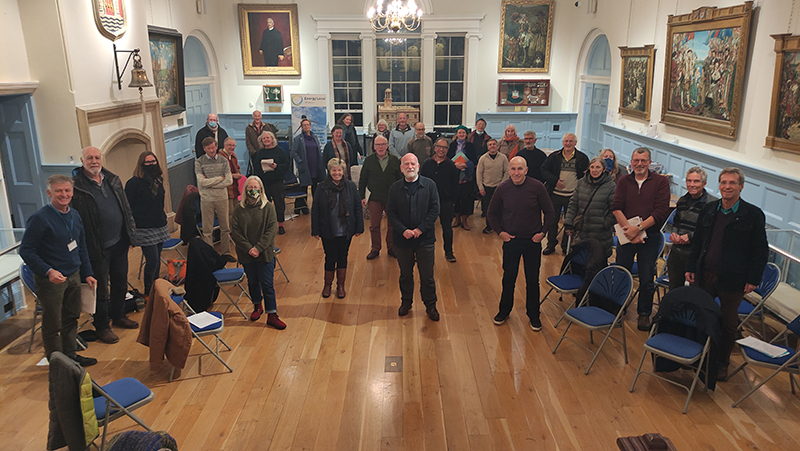The holiday time around New Year 2022 has been a chance for some of us to reflect on the outlook for the climate crisis, and it’s not a cheery prospect. I have been digging deep to find some constructive responses.
In reviewing current information, I was startled to learn that, if you adjust for the temporary economic slowdown from covid, global carbon emissions in 2021 continued to grow, and the growth rate is accelerating. This is featured in a YouTube talk by David Ramsden MBE, see talk here.
He also reports that CO2 emissions in recent years have been above the trend towards worst case scenarios (3.2o to 5.4o rise by 2100), and that the mean average of projections for 2100 has risen to 4.0o, from 3.5o in 2018. Maybe we have forgotten COP26 over Christmas, but recall that it needs massive cuts in annual emissions, starting now, to keep temperature rises to 1.5o overall. Frankly, this is unlikely.
This outlook has led to a sense of desperation, for me, and many people I know. I was touched by a recent article by George Monbiot, describing how he burst into tears on live TV when being interviewed after COP26. See feature here.
So in the past couple of weeks, I’ve been down in the pit of despond, looking for gems of hope. They’re hard to find, but here’s what I’ve come up with:
- Pray for miracles: it is objectively true that only miracles, i.e. events way beyond rational expectation, can save us from temperature rises well over 1.5o, and all they’d bring. So we can at least pray for such miracles to happen. As part of this, picture the transformative changes you hope for, such as radical action by governments, huge behaviour shifts by billions of consumers, and a longterm approach from businesses. Quite a few people, including me, are praying and meditating for planetary healing and positive change at 7.00pm GMT every Sunday, for half an hour.
- Do what you can in your local community: even though I don’t think my efforts in the last two years locally have had a big impact, they’ve had some, and that may accelerate as climate extremes, gas and food costs, etc., get worse. At minimum, doing what you can will help your morale, and we’re all going to need mutual support soon in our local communities.

One of the Bridport Climate Forums which Alan helped organise
- Do what you can for the bigger picture: this could include supporting national campaigns, lobbying your MP, donating to help the many people already dislocated by climate change, protecting forests and habitats. See where your passion is and act on it!
- Keep your heart open, and grow your resilience: In my recent dig for gems of hope, I had a helpful talk with a friend who is an Anglican priest, and an activist with Extinction Rebellion. I asked, “If we believe there is a divine power shaping the human world, why would it be creating this huge, worsening crisis, and all the suffering it’s likely to bring?”
Between us, the best answer we could come up with is this: to see this extreme crisis as urging us all to go beyond, to grow in extraordinary ways. In particular, to keep our hearts open, to stay loving, generous, collaborative, under pressures that could just lead to selfish grabbing. Exploring Soul Resilience might be part of this for you, as it is for me. We also need to transform the level of our resilience skills: for example, our ability to live with and mediate conflicts, to stay clear amid confusion. Co-creativity will be crucial for this.
